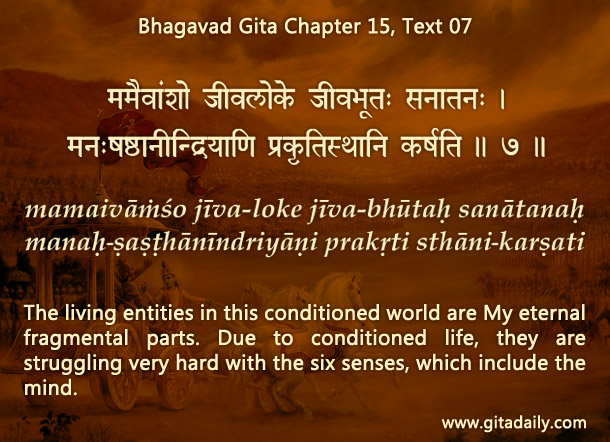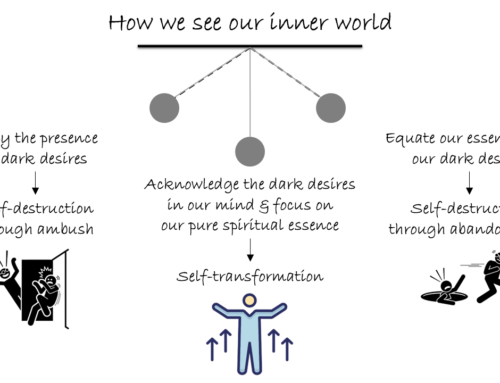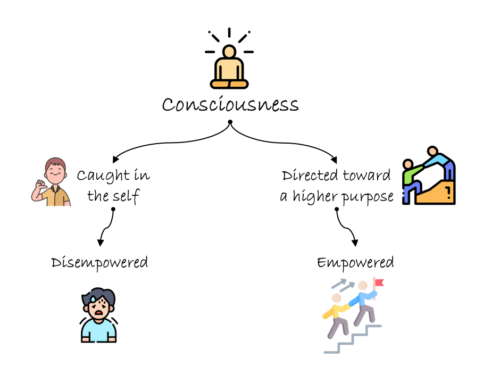In today’s ultra-competitive society, we often struggle to find a place of value for ourselves. While seeking that place, we often look at who occupies a large space on the social stage. On finding such glamorized people, we try to become like them.
While we can learn some things from them, we can never become them; they are uniquely individual, as are we. Rather than becoming discouraged by thinking that we can’t become them, we can become encouraged by contemplating that there’s only one person who can be us: we ourselves.
Pertinently, the Bhagavad-gita (15.07) indicates that each one of us is a precious part of God. And he has a divine plan for existence in which we all have a role to play. How can we play our role? By being ourselves, or more precisely, by being our best selves.
Unfortunately, we often fixate on the size of our role and crave to get a bigger role. Imagine a play in which everyone is trying to play someone else’s role — it will be a disaster. Similarly, when we get obsessed with becoming someone else, we devalue ourselves and disrupt society.
God values us for our role, not for the size of our role — and so can we. When we stop trying to be someone else, we free our emotional and intellectual energies to find ways for unleashing our latent potentials and thus progress toward becoming our best self.
By striving to play our role better — not get a better role — we occupy the niche that God had waiting for us all along. And therein we discover enduring fulfillment.
One-sentence summary:
No one can be as good as you at one thing: being you — why give up who God has made you for trying to be someone else?
Think it over:
- How does our search for a place of value become misdirected?
- What happens when we try to become someone else. Explain with a metaphor?
- How can we find God’s niche for us?
***
15.07: The living entities in this conditioned world are My eternal fragmental parts. Due to conditioned life, they are struggling very hard with the six senses, which include the mind.




Leave A Comment